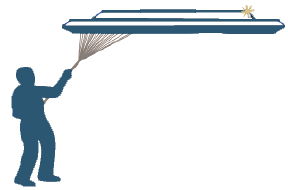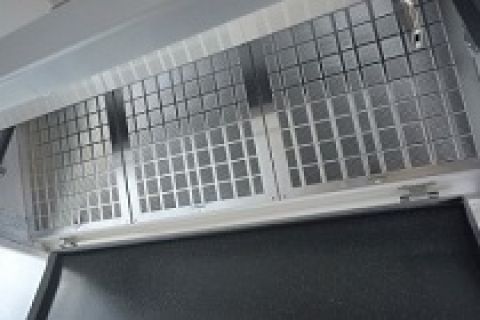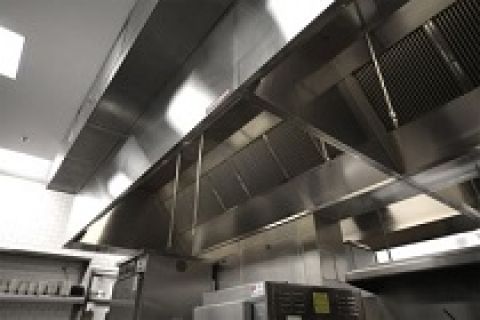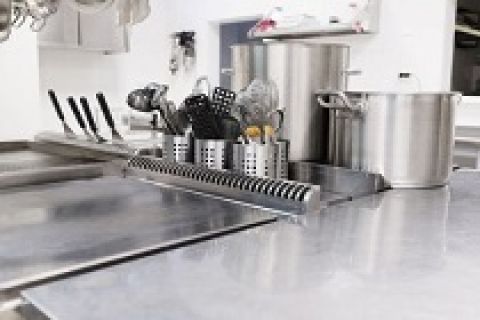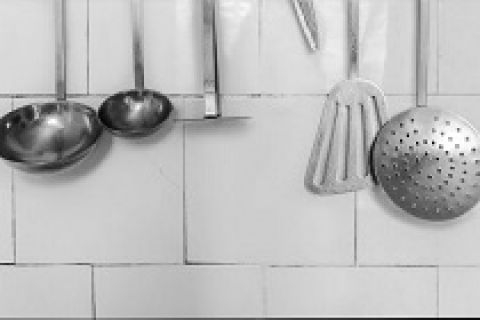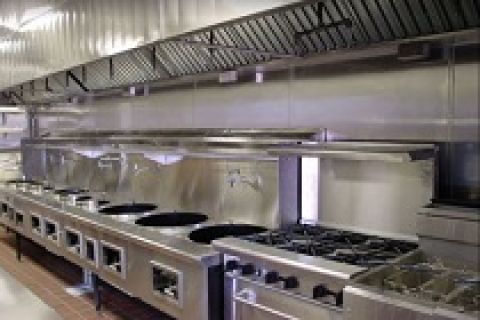Lesser-Known but Still Significant Commercial Kitchen Maintenance Errors
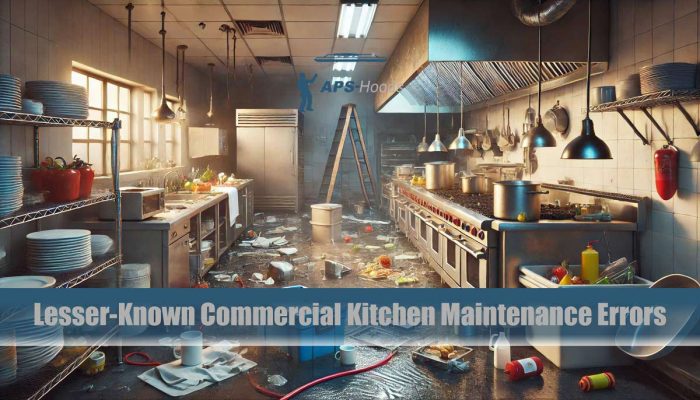
In the crazy hustle and bustle of a commercial kitchen, where everything needs to run like a well-oiled machine, it’s easy for even the most experienced chefs and staff to make some common kitchen maintenance errors.
While big issues like broken equipment or safety hazards get all the attention, a bunch of smaller maintenance mistakes can quietly mess things up. Ignoring the ventilation system or not following proper cleaning routines might seem minor, but they can lead to expensive repairs, slow down productivity, and even create health risks.
In this article, we’ll dive into these sneaky pitfalls, highlight why keeping up with kitchen maintenance is super important, and share some handy tips to help you keep your kitchen safe and running smoothly.
Any maintenance questions?APS-Hoods is here to help.Get in touch via 800-750-7313.
Common Kitchen Maintenance Errors: Skipping Preventive Maintenance
The first is ignoring equipment check-ups. Not checking on your kitchen gear can lead to serious issues such as a breakdown during the dinner rush. So, set up regular check-ups and keep a log to track how each piece of equipment is doing.
The second is neglecting ventilation systems. Forgetting to clean your ventilation hoods and filters can lead to bad air quality and fire risks. A clogged system means more heat and smoke, plus a chance of grease fires. Thus, create a cleaning schedule for your ventilation systems and replace filters when needed.
The third is skipping deep cleaning. Not doing a thorough cleaning of your kitchen can let grime and bacteria build-up. This can lead to health risks, bad food quality, and even health code violations. So, make a detailed cleaning checklist with daily, weekly, and monthly tasks, and assign them to staff members.
The fourth is overlooking plumbing Issues. Ignoring small leaks or slow drains can cause bigger plumbing headaches. Water damage can hit hard, leading to costly repairs and service interruptions. So, keep an eye out for leaks and check drain performance regularly.
The fifth is not calibrating your kitchen equipment. If you forget to calibrate cooking gear, it can cause uneven cooking. This can mess with food safety and quality. Thus, regularly check and calibrate all your cooking equipment according to the manufacturer’s guidelines.
The sixth is not training staff on proper maintenance practices. If you don’t teach your staff properly, you will face equipment misuse and missed tasks. This can also wear out your gear faster. So, hold regular training sessions on maintenance practices.
The seventh is ignoring manufacturer guidelines. Not following these guidelines can void warranties and shorten your equipment’s lifespan.
Common Kitchen Maintenance Errors: Disregarding Food Safety Standards
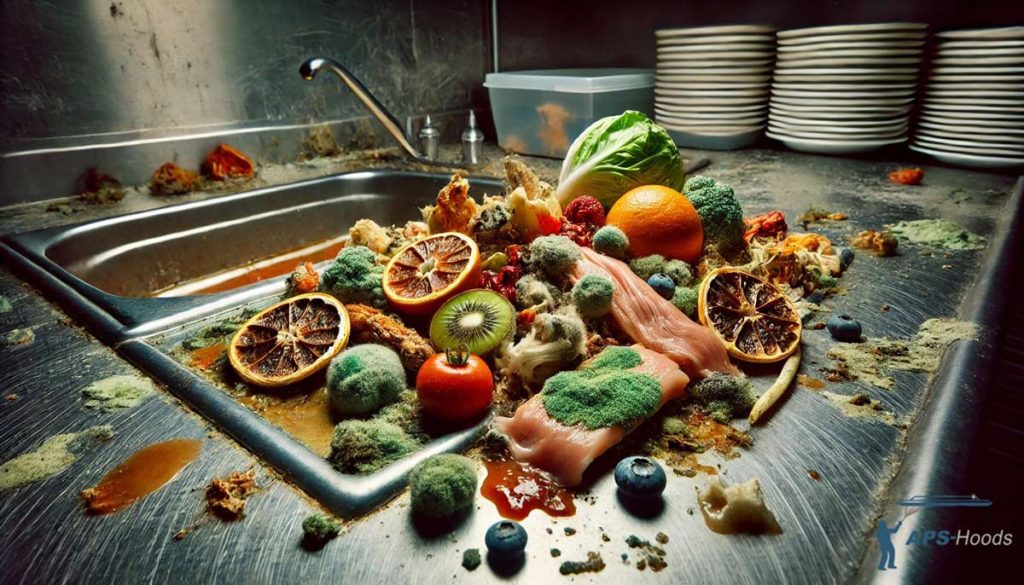
Not keeping food at the right temperature or forgetting to label and date stuff can spoil or make people sick. Besides, if you don’t label things, you might accidentally use something that has expired. So, make it a rule to label and date everything. Check your fridge and freezer temps regularly to keep things safe.
If you don’t clean surfaces, utensils, and equipment often enough, it can let bacteria thrive, which can lead to cross-contamination and sickness. So, set up a cleaning schedule for daily, weekly, and monthly tasks. Teach your staff the right way to clean and sanitize.
Besides, forgetting to calibrate thermometers and cooking gear may cause undercooked meals or overcooked disasters. Thus, regularly check and calibrate all your temperature-sensitive equipment according to the manufacturer’s instructions.
If you don’t have a plan for dealing with pests, then they will surely get into big trouble with health codes. So, team up with a pest control service to create a solid pest management plan.
Skipping out on training staff about food safety practices will lead to contamination and health risks. You’d better hold regular training sessions on food safety rules. Cover everything from handling to cooking and storage.
Moreover, remember to check the temperatures of stored and cooked foods regularly. If food is kept at unsafe temps, it can promote bacterial growth. So, use digital thermometers to check food temps during storage and cooking. Don’t forget to keep logs so that everyone stays accountable.
Finally, if you don’t dispose of food waste properly or let it pile up in preparation areas, it may attract pests and create a messy, unsanitary kitchen. Thus, create a waste management plan with regular disposal schedules and designated areas for trash away from food preparation zones.
Common Kitchen Maintenance Errors: Inadequate Waste Management
Bad waste management is basically not handling, storing, or getting rid of kitchen trash properly. This includes food scraps, packaging, and all that other junk.
Piles of waste can attract pests like rats and bugs, which can mess with food safety and get you in trouble with health inspectors. Also, leaving organic waste lying around can lead to bacteria growth, increasing the risk of foodborne illnesses.
Stinky waste can fill up the kitchen and dining area with awful smells, making it uncomfortable for everyone. Besides, a cluttered workspace because of unmanageable trash can slow down your team and lead to mistakes in food prep.
Poor waste management can also mean bigger disposal fees, especially if you’re not sorting things out for recycling or composting. Moreover, not following local health rules about waste disposal can result in fines or even shutdowns.
So, to avoid inadequate waste management, put together a plan that clearly outlines how to handle different types of waste (like organic, recyclable, and general trash). Make sure you have bins for each one.
Teach your staff about proper waste disposal and why cleanliness matters. Regular training is the key.
Regularly check the waste disposal areas to make sure everything is running smoothly. Tackle any issues ASAP.
Create a schedule for when waste should be taken out based on how busy the kitchen gets. Also, set up separate bins for recyclables and compostable stuff and train your team properly.
Keep an eye on how much waste you’re generating. This information can help you find ways to improve and reduce overall waste.
Lastly, make sure all areas where you handle waste are clean and sanitized. Regularly clean the bins and surrounding spots to avoid odors and pest issues.
Common Kitchen Maintenance Errors: Postponing Repairs
Putting off repairs is all about delaying fixes on your kitchen gear. Whatever the issue is, you should never ignore repairs for some good reason.
Firstly, if something breaks down, you could end up with unexpected downtime. That means lost sales during busy hours.
Secondly, small problems can snowball into major issues if you don’t deal with them. What could’ve been a quick fix might turn into a pricey repair or even a full replacement.
Thirdly, broken equipment can be dangerous. A faulty stove could spark a fire, and a broken fridge can spoil food, which is a health hazard.
Fourthly, if your gear isn’t working right, it can mess with food storage and preparation, putting your customers at risk for foodborne illnesses.
Fifthly, when equipment isn’t running smoothly, everything takes longer. This can hurt your staff’s productivity and leave customers unhappy.
Sixthly, a kitchen that’s falling apart can frustrate your team, leading to low morale and higher turnover rates.
To fix the issue of putting off repairs, create a regular maintenance plan to check and service all your kitchen equipment.
Also, make sure your staff knows to report any weird sounds or malfunctions ASAP. You can implement a system to track reported issues and ensure they get fixed on time.
Moreover, set aside some cash each month for repairs and maintenance. Also, don’t forget to schedule regular checks of all your equipment and facilities. This helps you spot potential problems early on and address them quickly. Remember to document all the repairs and maintenance you do too.
Finally, build a good relationship with your maintenance techs or service providers. Clear communication ensures that repairs are prioritized and handled efficiently.
Don’t you know how to maintain your food establishment?No need to worry. Leave it to us. Our number is 800-750-7313.
Common Kitchen Maintenance Errors: Overcomplicating Maintenance Schedules
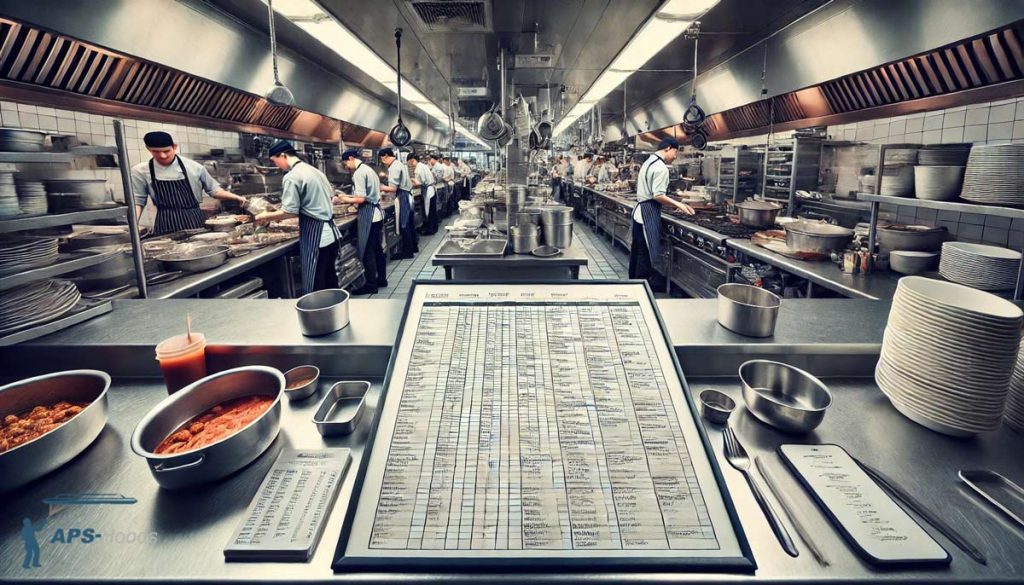
Overcomplicating maintenance schedules means creating plans that are just too detailed or tricky to follow. This could be anything from excessive paperwork to having too many different frequencies for tasks or tracking systems that just overwhelm the staff instead of helping them.
If your schedule is too complex, team members might not know what they’re supposed to do or when leading to missed maintenance. It can also add unnecessary stress to an already busy environment.
Moreover, time spent figuring out a complicated schedule is time taken away from actual kitchen work, slowing things down and affecting service quality. With too many steps or unclear instructions, mistakes are more likely to happen resulting in skipped maintenance tasks and equipment failures.
If responsibilities aren’t laid out, it’s tough to hold staff accountable for their maintenance tasks. Besides, a complicated system makes it hard to see what’s been done and what still needs attention, leading to gaps in maintenance.
To simplify maintenance schedules, you’d better prioritize your key tasks. Figure out which maintenance tasks are the most critical for safety and efficiency and focus on those first.
You can also create easy-to-follow checklists for daily, weekly, and monthly tasks. So, staff can quickly see what needs to be done without getting overwhelmed.
Establish straightforward frequencies for maintenance tasks (like daily cleaning or weekly inspections) without making it too complicated. Stick to a routine that works.
Moreover, you can use simple digital tools or apps that help with tracking without being overwhelming. Look for options that send reminders and make reporting easy.
Train your staff effectively and make sure everyone knows their role. Moreover, periodically check in on your maintenance schedule and adjust it based on staff feedback. Keep it flexible but effective.
Frequently Asked Questions on Common Kitchen Maintenance Errors
1. How Can I Prevent Grease Buildup in My Kitchen?
Regularly clean surfaces with degreasing cleaners, especially around the stove and range hood. Use splatter screens when frying and ensure proper ventilation while cooking.
2. Can I Use Bleach to Clean My Kitchen Surfaces?
While bleach can disinfect surfaces, it’s not always recommended for all kitchen materials (like wood or certain countertops). It’s best to use a cleaner that is suitable for the specific surface you are cleaning.
3. How Can I Keep My Kitchen Organized to Avoid Messes?
Implement a regular decluttering routine, use storage solutions like bins and shelves, and ensure that everything has a designated place. This will help you to prevent messes from accumulating.
4. What Are Some Tips for Maintaining Kitchen Countertops?
Clean spills promptly, avoid using harsh chemicals or abrasive scrubbers and use cutting boards to prevent scratches. For stone countertops, consider resealing them periodically based on manufacturer recommendations.
We are first to protect your business.Call 800-750-7313 for a free quote.
Avoid Common Kitchen Maintenance Errors with the Help of APS-Hoods
To wrap it up, keeping a commercial kitchen in good shape is very important for safety and smooth operations. But there are some common mistakes like skipping preventive maintenance, ignoring food safety standards, making maintenance schedules too complicated, skipping routine checks, and not properly training the staff, that can mess things up.
By spotting these issues and sticking to simple, effective maintenance routines, kitchen managers can create a vibe where everyone cares about taking care of the equipment and keeping things clean. So, not only your kitchen gear will last longer, but also you will make the kitchen a safer and more productive place for everyone, so they can keep serving up great food!
If you have any maintenance issues, APS-Hoods assures you that the quality of our work exceeds our competitors. Just get in touch with us to get a free consultation with one of our experts.
Tags: commercial kitchen maintenance, Commercial Kitchen Maintenance Errors
